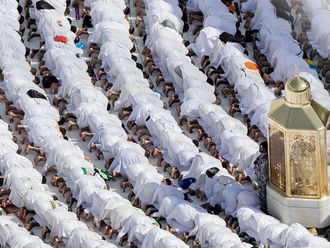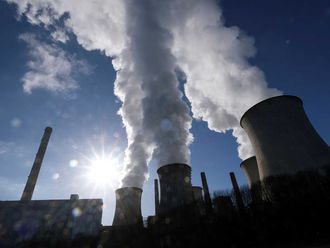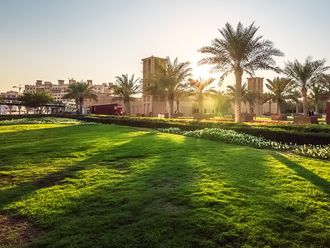Baghdad: Saudi Arabia, which has had uneasy relations with Iraq's Shiite-led government, has named an ambassador to Baghdad for the first time since Saddam Hussain invaded Kuwait in 1990, Iraqi Foreign Minister Hoshiyar Zebari said yesterday.
"For the first time since 1990, the Saudis have named an ambassador to Iraq. This is a very positive development," Zebari told Reuters, without elaborating.
Iraq is preparing to host an Arab League summit at the end of March that has been twice delayed by regional turmoil and acrimony between Baghdad and some Gulf states over a crackdown by Bahrain's government on protesters.
The move to improve ties between Baghdad and Riyadh also comes as Sunni and Shiite powers jockey for position in the Middle East, split along sectarian lines over the crisis in Syria and over Western sanctions on Iran.
Saudi Foreign Ministry spokesman Osama Nugali said: "We nominated our ambassador in Jordan as ambassador for Iraq as well, but he will not be residing in Iraq."
A successful summit in Baghdad would help restore Iraq's place in the Arab world and perhaps contribute to allaying Gulf states' concerns about Iran's influence in post-war Iraq.
Tehran's influence
Saudi officials had also said they feared the American military withdrawal would allow Tehran to increase its influence in Iraq under Shiite Prime Minister Noori Al Maliki.
Saudi Arabia was alarmed when its ally, the USA's invasion of Iraq in 2003 brought Iranian-backed Shiite factions to power in elections after the overthrow of Saddam's Sunni-based rule.
Iraq also has strong ties to Syria, Iran's only Arab ally, which the Arab League has suspended over President Bashar Al Assad's violent suppression of an 11-month-old uprising.
Strengthening relations
Saudi commentators said the move appeared to be motivated mostly by the country's desire to strengthen its relationship with Iraq before the Arab League summit. Iraq has long pressed Saudi Arabia to appoint an envoy to Baghdad.
"Iraq is going to host the Arab summit next month so there will be a great deal of diplomatic activity," said Jamal Khashoggi, a Saudi commentator.
"Maybe this is our way of saying ‘Okay, now we have an ambassador' without actually putting one there. But the security situation is not good."
Baghdad has often accused Saudi Arabia and Turkey of meddling in its affairs, especially after a 2010 election that kept Al Maliki in office under a power-sharing deal among Sunni, Shiite and Kurdish blocs.











